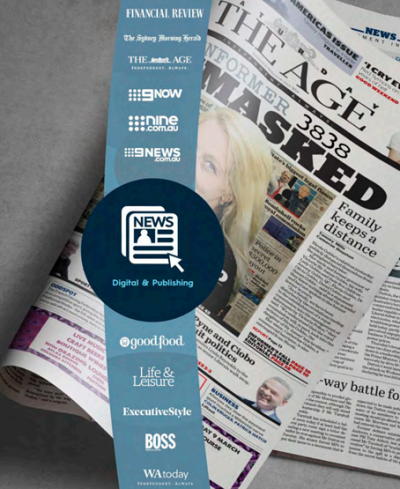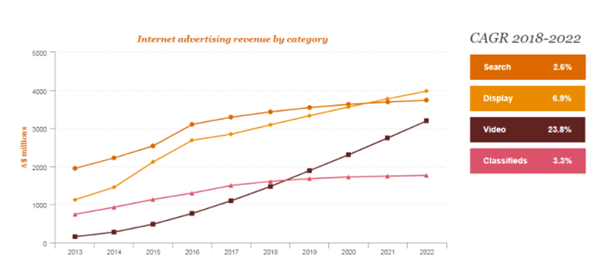Seeking the Post-Covid Sunshine: Neutrality in the Commercial Disputes Between Media Giants

By Denis Bright
As an early federal election approaches later in 2021, the LNP will expect the usual assistance from the rear-guard sections of the old print, talkback shows and sensational television media to polarize public opinion in its favour.
As usual, the electorate will be wedged between a number of burning issues such as the need for a low tax economic recovery from the current COVID-19 challenges.
With headlines like these from the 2013 federal elections to frame the key issues, the most influential sections of the Old Media will be working overtime to torpedo alternative policies.
Most of the electorate now looks to the internet for its political cues and in most cities the print media only has a supporting role to the media dramas played out on eyewitness news programmes.
Getting the digital media offside through the LNP’s Media Bargaining Code offers a real departure from the entrenched electioneering model.
The harvesting of news content from the Old Media to the New Soft Media certainly degrades news reporting but this is essentially a commercial dispute which should be settled through negotiation between the parties.
The LNP’s Media Bargaining Code fails to address the wider issue of tax evasion. Both Old and New media networks are involved in the tax evasion game.
Although most of News Corporation’s operations are global and diversified well beyond the print media and television networks, the company shares with Google and Facebook a penchant for tax avoidance. News Corporation declared a loss on its entire operations in 2020 and 2018 (News Corporation Annual Report 2020):

Even more blatant than News Corporation, the tax evasion antics of the New Media Companies are legendary. Ben Butler of The Guardian (18 December 2019) reported on the recovery of $481.5 million from Google by the ATO. Such local irregularities are the tip of a global tax evasion epidemic as reported by BBC News (26 October 2020):
“Google, Facebook and Microsoft should be paying more corporation tax in developing nations, says ActionAid.
The aid charity estimates that poorer countries are missing out on up to $2.8bn (£2.2bn) in tax revenue that could be used to tackle the pandemic.
ActionAid is calling for big companies to pay a global minimum rate of tax.
Facebook and Microsoft declined to comment while Google did not immediately respond to a request for comment.
Multinational corporations are currently not required by law to publicly disclose how much tax they pay in some developing countries.
According to ActionAid, “billions” might be at stake that could be used to transform underfunded health and education systems in some of the world’s poorest countries, especially since multiple tech giants have reported soaring revenues during the pandemic.”
Annual reports of the New Media giants are usually available and should be perused for investigation of just what they don’t say to readers.
Changes in cross-media ownership rules on the LNP’s watch have enabled sections of the Old Media to upgrade their national profiles. Peter Costello is listed in the latest Nine Network Annual Report as one of its directors (Image Annual Report of the Nine Network 2019):

With the capacity of Old Media to diversify its operations, there was no evidence of profit shortfalls in its latest annual report for 2019:
Nine Result in brief from the 2019 Annual Report

“In FY19, Nine reported Group EBITDA of $350 million, up 36% on FY18, driven by a 40% increase in Group Revenues to $1.8 billion, reflecting the impact of the merger with Fairfax from 7 December. On a continuing business basis, Statutory Net Profit after Tax and Specific Items, which were predominately accounting led non-cash items, was $217 million, up 3%.
On a Pro Forma basis, NEC reported Group EBITDA of $424 million, up 10% on FY18, on revenue of $2.3 billion. Net Profit after Tax and minority interests increased by 16% to $198 million compared to the FY18 result. Earnings per share was 11.6 cents, (+16%) and a full-year dividend of 10c per share, fully franked, was declared.”
As largely Australian based company, Nine Network is forced to pay more taxation than its internationally based Old and New Media rivals.
Selectively restricting the New Media will not address the wider problem of tax evasion and unethical practices by media networks as corporate and political players.
The tracks taken by the Morrison Government to protect the Old Media should have no support from either the Labor Party or progressive crossbench senators. However, this emergent folly can generate a newsworthy senate inquiry.
The Morrison Government has clearly underestimated the influence of the New Media with Australians of all age groups and particularly younger age groups who are not fiercely interested in formal politics.
The Challenge of Incorporating the New Media
Long before the current COVID-19 problems on the challenges from the New Media were evident in the growth of internet advertising with support from digital outdoor advertising (The Guardian, 22 July 2019). Platforms like Facebook, Twitter and Instagram have flourish during the pandemic with emails the essential mechanism for online retailing as shown by trendlines from the B and T Marketing Magazine (13 June 2018):

Accompanying the growth of the New media is a rapid growth of invasion of privacy from valued clients. A senate inquiry should be able to prove this issue while tackling the problem of tax evasion made possible by the global outreach of the New Media. In ethical hand however, the harvested data could contribute to a better understanding of social trends.
BBC News through its technology department has shown that the lapses of the New Media are not confined to the most obvious arts of tax evasion and sensational networking of vital events (BBC News 8 January 2021):
“And is it even clear that social media bears most of the responsibility for spreading the lies and hatred that led to the assault on the Capitol?
Remember, Fox News, talk radio stations and more recently TV channels such as OANN and NewsMax have fed their audiences a Trump-shaped view of the world for a long time.
Last year, Harvard University’s Berkman Klein Center published a study of how misinformation spread about the amount of fraud in postal voting.
The researchers found that social media activity around the subject surged when mainstream news reports carried speeches about it by President Trump, peaking last April when Fox News ran numerous segments about its dangers.
Ever since the Reagan administration abolished the Fairness Doctrine in the 1980s, television news channels have been free to offer a partisan view. The result today is that viewers of Fox News and MSNBC might as well occupy two very different countries.
It is hard to see how tighter regulation of social media will change that.”
In such difficult times, more resources are needed for public broadcasting to publish ethical findings from data harvesting possibly through a revitalized Australian Broadcasting Control Board with access to at least some of the data harvested for corporate gain and international distribution to familiar brand names.
Strengthening data protection is far more important than taking sides in the current disputes between New and Old Media which has extended into corporate interactive advertising practices.
Media landscapes of the future can survive without some of the familiar print masks which have operated as bastions for the retention of Australian conservatism and our continued colonial status in foreign policy.
Having raised the challenge from the New Media for political self-interest, the federal LNP can be faced with more in-depth public inquiries into the proposals. Progressive Australia should ensure that the challenges from corporate media power are addressed while issue is still topical.
Thanks to the federal LNP for giving life to the possibilities of this sleeping issue and generations of lack of financial support for public broadcasting which has generated all those advertisements on the SBS network.
If Josh Frydenberg can temper the power of just one section of the New Media in negotiations with Facebook as noted on his interview on the Insiders Programme (31 January 2021), that’s less work for a future senate committee. The answers given in the interview offer more angles for addressing the wider problems of both tax evasion in Australia and unethical practices through invasion of privacy and data collection.
 Denis Bright is a member of the Media, Entertainment and Arts Alliance (MEAA). Denis is committed to citizen’s journalism from a critical structuralist perspective. Comments from insiders with a specialist knowledge of the topics covered are particularly welcome.
Denis Bright is a member of the Media, Entertainment and Arts Alliance (MEAA). Denis is committed to citizen’s journalism from a critical structuralist perspective. Comments from insiders with a specialist knowledge of the topics covered are particularly welcome.
Like what we do at The AIMN?
You’ll like it even more knowing that your donation will help us to keep up the good fight.
Chuck in a few bucks and see just how far it goes!










12 comments
Login here Register here-
Henrietta -
Lara -
Paul -
Leila -
Tessa_M -
James Robo -
Stella -
Terence Mills -
Roswell -
Chris -
Andrew J. Smith -
Paul
Return to home pageMaking private lives political to generate change are vital agendas for Recovery in the uncertain year ahead.
Regulation is necessary to prevent both old and new media networks from becoming new forms of colonialism as well as tax evasion as their profits are taken by directors for business activities in developing countries in desperate need of financial assistance. This applies to Asian countries as much as to Australia. We all share that common problem too much corporate power and not enough good government.
Very topical and informative as usual. Keep up your research Denis.
Media power is an extension of unethical corporate practice, Shopping centre reward cards often result in intrusive emails. Great research effort Denis but where is the groundswell of community action on these very sensitive issues.
Most people do not buy from the old print media but they are entwined in Media Power through their use of digital networks and emails.
Identity politics is greatly influenced by media intrigue and data harvesting.
Denis, a very interesting article and very topical at the moment.
When News Corp stopped printing 112 community and regional newspapers (76 went digital-only and 36 titles closed down altogether) the excuse was that regional advertising had dried up.
As we all know, these regional papers carried lots of classifieds and car dealers ads specific to the local area and, of course pages of real estate advertisements.
The real estate advertisements all went online through realestate.com.au owned by REA Group Ltd which in turn is owned by News Corporation.
So, the lifeblood of these regional newspapers, owned by News Corporation was sucked out of regional areas by…………News Corporation !
Nicely presented article, Denis. You’ve given me a bit to think about.
Digital power is the new form of energy which needs to be harnessed for the good of humanity.
Good article and agree with most comments but while ‘BigTech’ and/or Google/Facebook are being dog whistled and gouged by NewsCorp et al. (intending to influence rusted on legacy media audiences), much scepticism is required on the motives of NewsCorp, LNP et al..
It looks more like socialism for large public companies (‘corporatism’?), resisting innovation, quality content and disruption from competitors or substitutes, with messaging that promotes libertarian ideology and the LNP, is now the norm for media in Oz?
The same digital giants may also be a solution to ameliorate the perverse influence and domination of now consolidated legacy media in informing electorates; leveraging digital for local and regional interests with government subsidies to promote journalism etc.. (what ever happened to the latter?)
Not only should Australia be enacting robust anti-trust and monopoly behaviour legislation by local and/or global corporate entities, but also adopting similar digital/data regulations as the EU e.g. GDPR, would protect the rights of users in ‘opting in’ on emails vs. ‘opting out’ after the fact vs. giving corporate entities libertarian rights…… pretty basic stuff (already if your website has visibilty in the EU, the GDPR should be observed e.g. warning on internet tracking cookies)
One has never heard of a LNP MP demanding that NewsCorp or 9Fairfax should be touching up their own former ‘rivers of gold’ via their interest in the same portals cited by Terence Mills?
Now The Guardian (Murphy doing articles but no comments/feedback from subscribers), ABC (ditto) and the Greens (conservative party?) via SHY seem to concur with the LNP govt. and NewsCorp et al. on Google/Facebook impinging upon ‘their rights’ while ignroring the public’s right or need to be informed?
The problem of harvesting our private data should be addressed over protection of the Old Media.